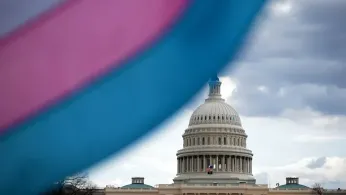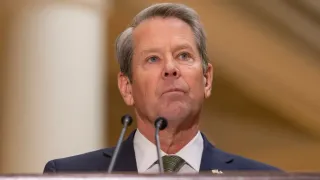
Jul 21
OPM Issues Sweeping Rollback on Gender Identity Protections for Federal Employees
READ TIME: 3 MIN.
In January 2025, President Trump signed an executive order titled “Defending Women from Gender Ideology Extremism and Restoring Biological Truth to the Federal Government.” This order mandated that all federal agencies, including the Office of Personnel Management (OPM), restrict their recognition of gender to a binary model based solely on sex assigned at birth. The directive specifically instructed agencies to remove references to gender identity from all forms, records, and policies, and to ensure that identification documents, such as passports and personnel files, reflect only "male" or "female" as defined by biological sex at conception .
This executive order also directed the OPM to withdraw all existing guidance, training, and resource groups that “inculcate or promote gender ideology.” It further required the cancellation of diversity, equity, and inclusion (DEI) initiatives related to gender identity and placed staff responsible for such programs on administrative leave .
By July, the OPM had completed a government-wide review and overhaul of personnel policies and documentation. All agency-issued identification documents, including employee badges and records, now refer exclusively to "sex" rather than "gender." Federal forms have been revised to provide only "male" and "female" options, eliminating any opportunity to specify gender identity or select nonbinary markers .
The OPM also directed agencies to review and revoke any personnel policies or resource groups that previously supported transgender and nonbinary employees. Staff involved in DEI work related to gender identity were reassigned or placed on administrative leave. Trainings and communications that included content on gender identity were canceled or removed from agency schedules and archives .
Additionally, all email and HR systems had their pronoun fields and prompts deactivated, further erasing recognition and affirmation of gender-diverse identities in the federal workplace .
The directives have immediate and far-reaching implications for transgender and nonbinary federal employees. By requiring all personnel records and government-issued identification to reflect only binary sex assigned at birth, the policy effectively forces employees to misidentify themselves in official contexts. This change removes previously available options for updating gender markers on documents and accessing facilities and resources that align with an individual’s gender identity .
Employee resource groups and affinity networks dedicated to the support of LGBTQ+ staff have been disbanded, eliminating crucial peer support and advocacy spaces within federal agencies . Furthermore, access to bathrooms, locker rooms, and other gendered spaces is now restricted by sex assigned at birth, regardless of an employee’s gender identity or transition status .
Advocacy organizations have quickly mobilized in response to the OPM’s July implementation of these policies. Groups such as the Human Rights Campaign and Lambda Legal have condemned the rollback, describing it as a direct attack on the dignity, safety, and legal rights of transgender and nonbinary people in federal employment. Legal experts note that the new measures stand in stark contrast with recent court decisions, such as the 2020 Supreme Court ruling in *Bostock v. Clayton County*, which found that employment discrimination based on gender identity is prohibited under Title VII of the Civil Rights Act of 1964 .
The executive order and OPM’s compliance memo, however, argue that *Bostock* has been misapplied and that sex-based distinctions are legally permissible in federal employment. The Attorney General has been directed to issue further guidance to federal agencies to “correct” what the administration describes as a misreading of the Supreme Court’s decision .
In the wake of these sweeping changes, LGBTQ+ advocacy organizations are preparing legal challenges and supporting affected employees. Grassroots groups are calling for sustained public pressure and legislative action to restore and protect workplace rights for transgender and nonbinary people. Meanwhile, federal employees impacted by the new policies are encouraged to document experiences of discrimination and seek support through external legal resources and community organizations.
As the policy landscape continues to shift, the status and safety of LGBTQ+ individuals in federal workplaces remain at the center of national debate, with far-reaching consequences for inclusion, equity, and human rights in government employment.






